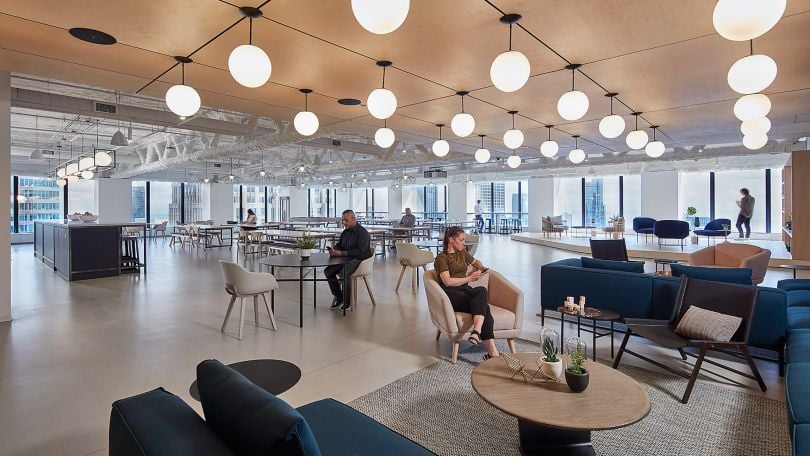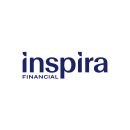Beneath every effective diversity, equity and inclusion strategy is an acute sense of uncovering the things that aren’t immediately obvious.
These forces lurk in the minute details, biases, stereotypes and historically reinforced structures that can glide by if left unchecked and unexamined without raising the alarm.
For those who belong to a minority or underrepresented group, unconscious biases taint work environments, create obstacles in professional growth and prevent effective collaboration.
Jobseekers with white-sounding names, for example, have been proven to be 50 percent more likely to get job interviews, according to research published in The American Economic Review. Regarding gender, women continue to be underrepresented in leadership roles, and UN studies have projected it will take 257 years to close the gender pay gap at the current rate.
Meanwhile, those in positions of power may be entirely unaware of the negative impact they are having on colleagues.
Still, just because something is unintentional doesn’t mean there aren’t ways to mitigate these biases and create a more supportive, open culture where everyone can achieve their full potential, regardless of background or identity.
However, unconscious bias will remain an insidious, lingering influence without intensive training and education. But four companies have invested in learning programs and strategies to combat harmful biases. DEI leaders shared the details of their approaches to minimizing unconscious bias.
Inspira Financial provides its more than 5 million clients with innovative financial wellness solutions to plan, save and invest — no matter where they are in their retirement journey.
What formal strategies does your company use to combat unconscious bias in hiring, promotions and performance management? What does this look like in action?
Inspira Financial values and invests in the employee experience, from their first interview to their last day. We continuously evaluate existing processes and programs to address unconscious bias in hiring, promotions and performance management. Currently, we provide hiring training for our leaders, including strategies for mitigating bias.
We continuously evaluate existing processes and programs to address unconscious bias in hiring, promotions and performance management.”
For performance management, including promotions, our team focuses on identifying and addressing rater bias and unconscious tendencies that would affect how a leader rates an employee. Our leaders are also trained annually on different types of bias and strategies to avoid rater bias.
We also proudly offer unconscious bias training for all colleagues on our internal learning sites and provide hiring training for our supervisors and managers.
How have these strategies impacted your organization’s diversity, equity and inclusion efforts?
Inspira Financial’s Employee Resource Group Program plays a critical role in fostering an inclusive workforce and currently includes three groups:
Women’s Professional Network was initially established to build a professional network that strengthens the leadership, power, and voices of women in the workplace — but now welcomes all. The group provides a forum for team members to enhance their effectiveness at Inspira Financial through career development, networking opportunities, inspiration, information exchange and developing mentor-mentee relationships.
The Diversity, Inclusion & Belonging Council champions our inclusion and diversity strategy by educating and empowering team members to navigate differences and similarities, cultivating a workplace where everyone is empowered and can be their best.
MTCares organizes fundraising and volunteer efforts on behalf of Inspira Financial. The goal is to provide opportunities for our employees to be actively involved and use their skills and strengths to give back to the community.
We also grow our diverse talent pipeline through partnerships with Cristo Rey Jesuit High School’s corporate work-study program, employing high school students from Spanish-speaking families on Chicago’s Southwest Side, as well as the Hiring Our Heroes Military Spouse Fellowship and CareerSpring, an organization that fosters professional networking, career counseling and employment placement programs for first-generation and low-income college students.
What are the diversity, equity and inclusion goals that your company has set? Why are those goals important?
We’re dedicated to creating an inclusive, connected and fun work experience and environment that celebrates our employees, embraces diversity and provides development and networking opportunities for all. We nurture a culture that promotes inclusion and belonging to make everyone, regardless of who they are or what they do for the business, feel equally involved, supported and celebrated. Our inclusion and diversity strategy focuses on four pillars:
Firstly, talent: attract, develop and engage a highly diverse talent pipeline.
Secondly, an inclusive culture: model inclusive leadership behaviors to cultivate a workplace where everyone is empowered and can be their best.
Thirdly, the marketplace: build a trusted brand known for inclusion and diversity to be an employer and provider of choice.
Lastly, community: give back and support diversity and inclusion efforts in the local communities we serve to foster positive change.

Revantage, a Blackstone portfolio company, is a professional services company.
What formal strategies does your company use to combat unconscious bias in hiring, promotions and performance management. What does this look like in action?
At Revantage, we combat unconscious bias by building cultural intelligence (CQ) — the ability to adapt across differences and commonalities.
As a DEI practitioner for over 15 years, I know firsthand that CQ is an often overlooked skill and one that — much like your EQ (emotional intelligence) — is not fixed. Focusing on CQ enables inclusive collaboration, teaming and innovation by first addressing the individual behaviors that drive systemic change.
Since joining Revantage, I’ve partnered with our leadership team to make CQ an integral part of our “Inclusion in Action” DEI strategy, which promotes a sense of belonging and connection. We launched an immersive CQ program that includes on-demand learning, dialogue sessions, workshops and individual coaching to help bring this strategy to life for our employees.
Our workshops and coaching sessions aim to reach 50 percent of managers and 100 percent of our leadership teams to ensure we’re spreading knowledge throughout our organization. We also launched a workshop focused on inclusive interviewing strategies. By building these skills into our teams and processes, we’ve gone beyond unconscious bias training to drive change in our everyday culture.
How have these strategies impacted your organization’s diversity, equity and inclusion efforts?
Under our “Inclusion in Action” strategy, we have implemented numerous programs that have driven results. In 2022, we launched our “Let’s Talk” dialogue sessions to support mental wellness, develop cultural intelligence (CQ) and foster inclusion. In 2023, we expanded our efforts by launching “Build Your CQ” forums to help encourage open and honest conversations.
Our employees have benefitted from these sessions, with 96 percent of participants recommending Mental Wellness Forums to colleagues and 100 percent of pilot participants willing to attend or recommend “Build Your CQ” forums.
As a relatively young company, we have the advantage of implementing innovative solutions from the start. We take pride in the work we have done to build DEI into the fabric of our company. At the same time, we know there is always more work to be done and are open to implementing solutions at the forefront of equity and inclusion. Positive results in our employee engagement metrics reflect their appreciation of our commitment and efforts.
As a young company, we have the advantage of implementing innovative solutions from the start. We take pride in the work we have done to build DEI into the fabric of our company.”
What are the diversity, equity and inclusion goals that your company has set? Why are those goals important?
We focus on six key areas to ensure an equitable and inclusive workplace: Ensure equitable talent processes; support well-being and mental health; build cultural intelligence (CQ) to enable inclusive collaboration; ensure inclusive sourcing and supplier diversity; cultivate community and allyship among employees and partners; partner to positively impact communities where we live and work.
We’ve set these goals with intention. We believe DEI is not just a check-the-box initiative or a function that’s siloed from the rest of the organization. Our ultimate goal is to address root causes and ensure equity and inclusion for all. In pursuit of that goal, we integrate these principles into every aspect of our business, from the talent lifecycle to the solutions and services we provide to our partners and customers.

VelocityEHS is a new kind of EHS software company, helping clients reach their environmental, health, safety and sustainability goals faster.
What formal strategies does your company use to combat unconscious bias in hiring, promotions and performance management? What does this look like in action?
All of our hiring managers and interview team members go through formal training on how to combat unconscious bias in the interview and hiring process, including discrimination laws in the various regions we recruit from. We have also led a leadership training session about DEI in hiring, where we identify and mitigate both individual and systemic hiring-related biases at each stage of the hiring process.
People managers go through additional annual anti-harassment training, which covers understanding and managing bias, inclusive leadership practices and ways to create an environment of psychological safety. Our leadership team also has additional training centered on our Diversity Pillars, community norms created by our DEI council to call out the actions and behaviors needed to drive equity and inclusion in our organization. Our team also carries out multiple compensation audits per year to ensure equity in the promotion and pay raise process.
How have these strategies impacted your organization’s diversity, equity and inclusion efforts?
By transforming the way our organization thinks about bias, diversity and equity, all the way from pre-hire to promotion, we have successfully moved the needle on our DEIB goals. Since integrating diversity and inclusion material into our hiring training process in 2020, we’ve seen our new hire demographics shift significantly. This year alone, 54 percent of our new hires to date come from historically underrepresented groups, compared to just 29 percent in 2019. We’ve also seen a year-over-year increase in the diversity of our promotions since implementing a formalized DEI program. Over the last five years, racially diverse promotions have increased by 11 percent and female promotions by 17 percent.
By transforming the way our organization thinks about bias, diversity and equity, all the way from pre-hire to promotion, we have successfully moved the needle on our DEIB goals.”
What are the diversity, equity and inclusion goals that your company has set? Why are those goals important?
Since founding our employee-led DEI council in 2020, Voices at VelocityEHS, the group has set an annual organization-wide diversity goal that we track along with our top business metrics. In 2021, we asked all people leaders to complete over eight hours of diversity training and workshops to lay the educational foundation needed for our leadership. In 2022, we set out to increase our diversity partnerships — meaning recruiting sources, charitable donations, volunteer opportunities and so on — by over 200 percent, a key leading indicator for our commitment to equity. And in 2023, we launched our first-ever executive mentorship program, focused on supporting employees from historically underrepresented populations by pairing them with a member of the executive team for one-to-one mentoring.
All of these goals drive our equity mission forward and allow us to recruit, support and grow diverse talent in our organization. VelocityEHS knows that diversity of perspective and experiences leads not only to a richer and more fulfilling employee experience for all, but brighter business outcomes and a better product for our customers.

Hireology, one of Built In’s Best Places to Work in 2023, helps HR professionals and recruiters attract, hire and retain talent in a single platform.
What formal strategies does your company use to combat unconscious bias in hiring, promotions and performance management? What does this look like in action?
Since we build recruiting software here at Hireology, it’s crucial that we offer hiring tools that guide hiring managers toward a path of unconscious bias. Outside of the Hireology platform, which has many tools and widgets to combat unconscious bias, it all comes down to intent. It’s absolutely crucial that we are intentional with every hire, promotion and partnership that we create to combat bias tendencies that all of us are naturally unaware of. As a company, we try to reveal our own unconscious bias through annual training, manager roundtable meetings and day-to-day discussions as teams. This helps us understand what our own unconscious bias may be; additionally. taking a hard look in the mirror is a powerful tool we use.
It’s absolutely crucial that we are intentional with every hire, promotion and partnership that we create to combat bias tendencies that all of us are naturally unaware of.”
How have these strategies impacted your organization’s diversity, equity and inclusion efforts?
These strategies have impacted our organization’s diversity very slowly — slower than we’d all like. Sometimes it feels like we are taking two steps back every time we take a step forward, but we have to remember that diversity doesn’t change overnight. As we continue to hire, promote from within and continue to prioritize diversity, we look back and can see big changes that all seemed small at the moment. We are very proud that women represent 62 percent of our leadership team, while 49 percent of our engineering team comes from diverse backgrounds.
Some other departments can definitely feel like a work in progress, and with what can sometimes feel like an impossible challenge, time and intention can make a huge difference as our company grows.
What are the diversity, equity and inclusion goals that your company has set? Why are those goals important?
Our goal is very simple. We’d like the employee population to match the population of the United States when it comes to diversity outlined in the U.S. Census. Only good things happen when people from all walks of life bring their ideas and culture to the table. A diverse team is imperative for building what is really a diverse product used by thousands of people in hundreds of industries all across the United States. But it’s also about helping to shape the tech industry.
The IT workforce is known to lack diversity, so if we can intentionally make even a small impact here at Hireology, we hope it’s another small step that has an everlasting impact.













